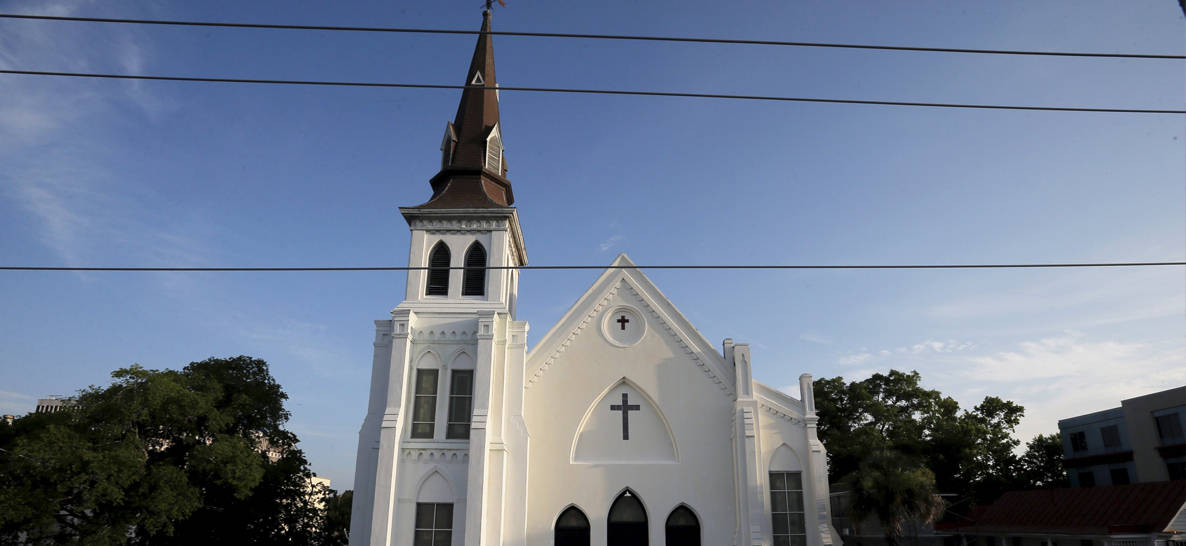
It’s easy and common for Christians to talk about Martin Luther King Jr. and racial reconciliation, especially during Black History Month. And this, really, is a good thing.
However, it’s much less common to talk about the role that white and majority churches played in and profited from American forms of slavery. In most circles, we mostly hear a version of American church history that features European colonialists and settlers (often evangelicals) as the heroes of the story—and then looks at other groups with suspicion.
“The real story of American Christianity is one that is both tainted with significant and shameful failures and also really beautiful successes,” says Anthony Bradley, a professor at The King’s College in New York City.”
“In the history of slavery, there’s very little to say about the history of Christianity in America that’s actually positive, given that Christianity and the Gospel and the Scriptures were central in establishing and justifying American slavery from 1619 all the way through the Civil War.”
Bradley, who is the author of several books, including Black and Tired and Liberating Black Theology, says it wasn’t until postbellum America that small groups of Christians started questioning the Scriptural basis of slavery support. But that narrative doesn’t receive much play.
“And that tends to have us embrace a really romanticized and exaggerated version of the history of American Christianity,” he says. “It tends to highlight the successes and sweeps the failures under the rug. Unfortunately, evangelicals want to be the heroes of American Christianity instead of letting Christ be the hero.”
This is a problem. We talked with Bradley about how American Christians can fix this problem.
How do you think some of that history bleeds into the American church today?
I think the Church today lacks humility because the narrative is that American evangelicals are awesome and they’ve always been right. And what it fosters is an arrogance that doesn’t appropriately position Christians today to be self-critical, to look inside within the context of the network of churches and networks of denominations and with humility admit the fact that 1) they don’t know everything and 2) they’ve made some mistakes.
We have to learn from our mistakes so we don’t repeat them, but we can’t do that if we don’t even talk about them. The problem today is that we don’t talk about those failures, and so we often repeat the same cycle of things that didn’t work in the past and won’t work in the future.
How does the Church start talking about some of these failures and learning how to move forward from them?
First, the Church needs to be acquainted with its actual history. Not a selected history, but the real story of how Christians were key facilitators of American slavery, how Puritans were chaplains on slave ships, how those who believed in the inspiration and inerrancy of the Bible used the Bible as a way to justify the slavery of African-Americans. They used the Bible to justify Jim Crow. They misused the Bible itself to do all sorts of heinous things, but that history isn’t told. The history is not told of how churches actually kept African-Americans from worshipping within the context of the congregation. The story is not told about why it was that plantation churches were set up in the first because white Christians did not want to worship with enslaved people.
The first step has to be telling the real story. It’s just amazing to me to think about the fact that you have scores of millennial and younger evangelicals and I’d say also Gen Xers who are clueless about the actual history of Christianity in this country. It seems that there is this allergic reaction to understanding or believing the fact that just because you did things wrong in the past doesn’t mean that Christianity is false.
Part of me wonders if our resistance to telling the story is our lack of confidence in recognizing that just because Christians practice the faith incorrectly and inappropriately at times doesn’t mean Christianity is false. Perhaps we are so used to believing this narrative that Christianity is right and good and true because of what Christians did as opposed to understanding that Christianity is right and good and true because of the death and resurrection of Jesus Christ. The truth of Christianity is not dependent upon the actions of God’s people at any given moment in history.
Last summer, the PCA general assembly was talking about whether they should publicly repent for the part they played in slavery. I feel like there has been a bit more conversation about that, have you seen that?
There’s a lot of conversation about these things. But there’s not a lot of really clear, demonstrative action that has been taken in light of the conversations. It is a good thing that these conversations are happening. There is this odd resistance to raising these issues because a lot of Christians seem willing to embrace solidarity with past Christians when it’s good, but they seem less willing to embrace solidarity with Christians when things are bad.
It seems a consistent solidarity with our brothers and sisters in the past means that we embrace their successes and their failures. This is exactly the thing that we see in the Old Testament: the narrative of a people who did some good things and some bad things. Jesus identifies Himself with those people.
That will open the door for a lot more conversations across race and class in this country, because there’s a lot of healing that needs to be done.
What would you think some of those decisive actions would need to be?
Within the Church base, it will include more white church leaders submitting themselves to the leadership of minorities in their own denominations and churches. It will, of course, include Churches engaging Christians of color who are outside of their denominations and in different parts of town toward the solidarity of working together to reach their cities for Christ.
It’s also in the Christian education space. Christian schools have an opportunity to open themselves out to constituencies in communities they may not typically seek to include, both in terms of students and staff and teachers. Minorities ought to be invited into the classroom both as faculty members and students, as board members of Christian schools and as teachers.
I would argue that evangelicals often put themselves in positions where they believe minorities should come to them and be received. But moving forward, evangelicals as far as possible given their geographic location need to move toward minorities and be in their churches and be in their schools and be in their neighborhoods to create opportunities for solidarity and reciprocity.
You’ve tweeted a few times about kind of the idea of urban ministry being equated to racial justice. How do you think we walk the line so predominantly white churches don’t just go into a community and say, “We’re coming to help,” but really integrate and come under leaders of color?
I would say that white churches need to go in communities and partner with the black churches and the hispanic churches and the Asian churches that are already there. It’s hard to imagine a minority neighborhood anywhere in this country that has a high concentration of people for whom there are not already existing churches. The idea that evangelicals need to move in and set up a flag for the Gospel and start something that’s not already there tends to overlook the decades if not centuries of work of Christians in churches that have been laboring in those neighborhoods already.
On this issue of conflating urban ministry with race, it seems to me that part of the problem that evangelicals have bought the narrative that was promoted in the media from 1965 to the early ’90s, that race and poverty were the same thing. The idea that we address issues of race by addressing the sort of socioeconomic issues in inner cities exposes that evangelicals are actually following what mainstream media has put out instead of pursuing what needs to be done on the ground by investigating these issues themselves.
So what happens is that when suburban, white evangelicals are challenged to think about race issues, the default move is to think about ways they can start sending money and support to inner cities, and those are not necessarily the same thing. There are race issues in the suburbs that need to be dealt with and addressed that have nothing to do with urban poverty. Those are not one in the same. So we have to look at these issues separately so we can make real progress.





















